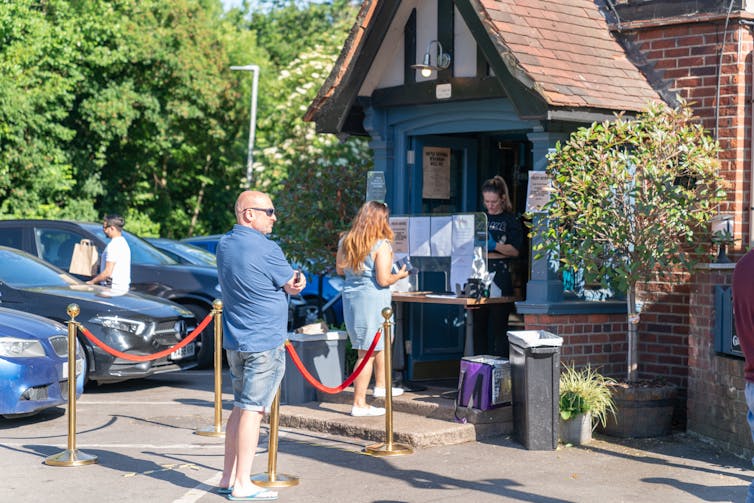Donia Waseem, University of Bradford and Joseph Chen, Macquarie University
Contact tracing is vital to supporting public safety during the COVID-19 pandemic. But rather than providing truthful information, it seems many people lie when asked to provide their contact details. Police officers in Australia, for example, have complained that people have been writing the names “Donald Duck” and “Mickey Mouse” on contact tracing forms.
Governments need to be able to fully trace citizens who have been exposed to COVID-19, and without the correct contact information, it’s impossible to do this. And it could potentially pose a serious threat to public safety when more restrictions are lifted and when the third lockdown in the UK properly comes to an end.
Our new research looks at people’s experiences of contract tracing and how to improve the system to ensure everyone’s health and safety. We conducted studies in the UK, Australia, New Zealand, Canada and the US. Initially, we surveyed 240 participants and found that most of them (74%) encountered contact tracing at hospitality venues. But that only 24% of them provided correct and complete information each time. About 68% chose their reluctance to cooperate was due to their concerns about privacy.
Next, we interviewed participants to address their privacy concerns. And also found what would help customers to better cooperate and have more trust when their personal information is collected and stored. Lastly, we conducted another survey with 365 participants to test our ideas.
Reassurance about data needed
We found that one of the reasons many people ended up giving false information is because they don’t feel fully comfortable giving their personal details but they still wanted to be polite and helpful. So in giving a false name, it allows them to fulfil the request without causing any problems or making a scene.
We also heard from our participants that if businesses showed how their contact details would actually be stored and gave a better sense of their capability to handle contact tracing professionally, they would feel more inclined to comply with the request. This makes a lot of sense because, of course, many people are scared about data breaches and privacy invasion. So they care about the business’s ability and professionalism to manage their information.
Our research shows that people are more likely to share their truthful information if they have confidence in a business’s competence to manage their data. One thing that people we spoke to mentioned was for businesses to make sure that contact tracing spreadsheets are not misused (many women have reported being harassed after handing over their contact details) and can’t be seen by other customers.
Government backing is key
It’s also clear that contact tracing should not be outsourced to companies with unclear privacy rules. Instead, it should be supported by governments. We found that if governments support contact tracing through strong data protection regulation and technology, people feel safe to disclose truthful information.
In this way then, governments can play a big role in helping to encourage people to cooperate with contact tracing at hospitality venues. And they can do this by requiring businesses to follow strong data protection policies. Governments can also enforce penalties if companies do not follow the rules.

The process needs to be standardised
Another thing that came up time and time again from our participants was the fact that businesses have different contact tracing systems – making it hard to fully trust how each method works. This is then more likely to lead to people giving false information to avoid engaging with each system.
This is why contact tracing needs to be a standardised process no matter which hospitality venue people visit. For example, the Restaurant Association of New Zealand has taken the lead in providing support for restaurants and cafes to conduct standardised contact tracing. This has helped to gain more cooperation from people as they know what to expect at each venue.
Word of mouth helps
Research shows that people rely on others’ words as “social proof” to guide their own behaviours. This is known as the “bandwagon effect”. And in terms of contact tracing essentially means that people will feel less sceptical about sharing their information when they’ve been told by others that contact tracing is important and safe.
This is why governments and businesses should launch social media campaigns to encourage people to share their positive thoughts about contact tracing. With positive word of mouth, more and more people will accept contact tracing as a new social norm. And as a result others will be more likely to follow in their footsteps and disclose truthful information.
Donia Waseem, Lecturer in Marketing, University of Bradford and Joseph Chen, Lecturer/assistant professor in Marketing, Macquarie University
This article is republished from The Conversation under a Creative Commons license. Read the original article.












